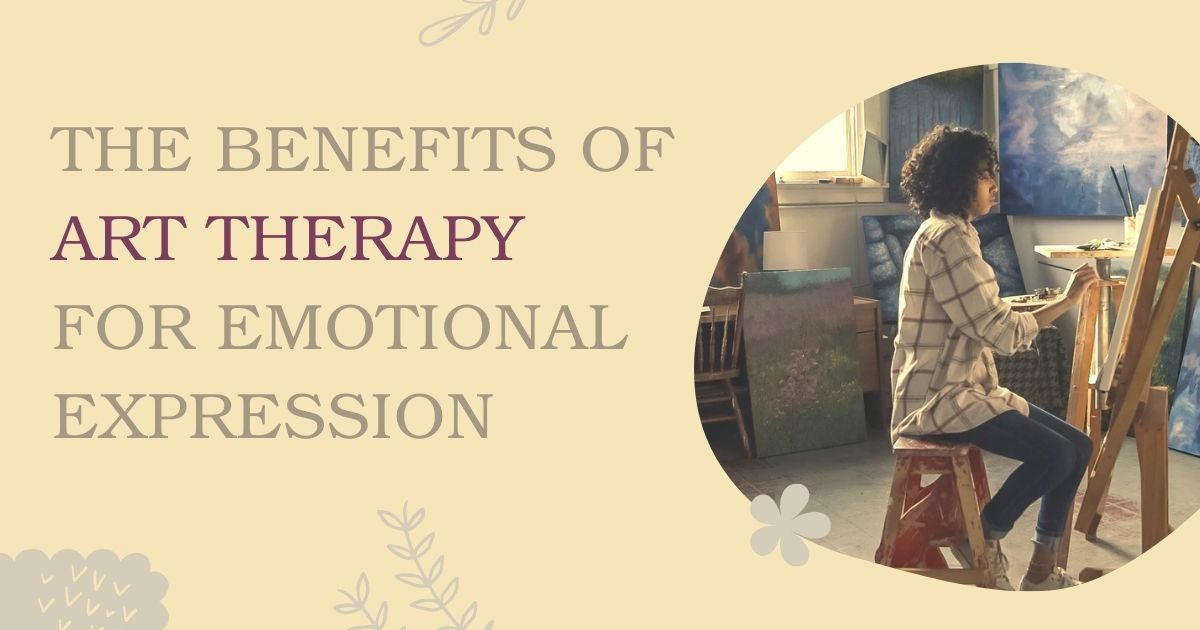Art therapy, a form of expressive therapy, combines the creative process with professional counseling by a qualified therapist. It offers a unique avenue for emotional expression, tapping into the creative side of individuals to explore their feelings, reconcile emotional conflicts, foster self-awareness, manage behavior and addictions, develop social skills, improve reality orientation, reduce anxiety, and increase self-esteem.
Understanding Art Therapy and Its Impact
Art therapy integrates psychotherapeutic techniques with the creative process to improve mental health and well-being. It’s not merely an art class; it is a therapeutic session where the creation process is part of healing. Participants engage in art-making led by an therapist, who helps them delve into the artwork’s underlying messages and emotions. This process can reveal subconscious thoughts and feelings, providing a non-verbal mode of communication for those who find it hard to express themselves with words.
The Historical Context and Modern Application
Historically, art has been a fundamental part of human experience, with its roots tracing back to ancient times. Today, the therapy has become an established field in mental health, helping individuals from various backgrounds cope with stress, trauma, and other psychological issues. The creative process involved in making art is known to stimulate dopamine release, enhancing feelings of pleasure and well-being.
The Therapeutic Process and Science Behind Art Therapy
In the sessions, participants may use drawing, painting, sculpture, or collage to express themselves. Therapists may provide prompts or let individuals choose their path. The aim is to use art as a medium to explore emotions, confront unresolved issues, and foster personal growth.
Research indicates that engaging in therapy can stimulate the brain’s reward center, releasing dopamine, a “feel-good” neurotransmitter. This release can be particularly beneficial for those dealing with depression or anxiety, offering a natural boost to their mood.
The Benefits:
Enhancing Emotional Well-being
It provides a unique outlet for emotional expression, allowing individuals to explore and articulate their feelings through creative work. This process can lead to improved self-awareness and emotional clarity.
Fostering Self-Esteem and Confidence
Creating art can be empowering, helping individuals gain a sense of accomplishment and boost their self-esteem. The sessions offer a non-judgmental space where participants can explore their creativity and develop a positive self-image
Supporting Mental Health Recovery
For those recovering from mental health issues, it can be a valuable component of their treatment plan. It can complement traditional therapies, offering a different avenue for expression and exploration of self.
Broadening the Scope of Art Therapy
Art therapy extends its reach beyond traditional therapeutic settings, offering benefits in educational, medical, and community contexts. Its adaptability allows it to be an effective intervention for diverse groups, including children, adolescents, adults, and the elderly, each experiencing its healing touch in unique ways.
Art Therapy Across Different Life Stages
- Children and Adolescents: Can play a pivotal role in supporting the emotional and cognitive development of young individuals, providing them with a creative outlet to express and process their feelings.
- Adults: Whether dealing with stress, mental health issues, or seeking personal growth, adults find in the therapy a path to exploring deeper self-awareness and emotional healing.
- Elderly: For older adults, it can be a source of joy, a way to maintain cognitive function, and a tool to express life experiences, often leading to enhanced quality of life.
The Process and Impact of Art Therapy
The sessions are tailored to individual needs, creating a space where one can explore personal challenges through artistic expression. This process can lead to profound insights and emotional relief, often contributing to significant therapeutic outcomes.
Key Components of Art Therapy Sessions
- Expression: Through various art forms, individuals express hidden emotions, unlock personal insights, and foster a deeper understanding of themselves.
- Exploration: Provides a safe environment to explore unresolved issues, facilitating a journey of self-discovery and personal growth.
- Empowerment: The act of creating art instills a sense of achievement, enhancing self-esteem and fostering a stronger sense of identity.
FAQs on Art Therapy
- Do I need to be good at art to benefit from the therapy?
No, it is not about artistic skill or talent. It’s about expressing yourself and exploring your emotions through the creative process. Everyone can benefit, regardless of their artistic ability. - How does art therapy differ from traditional therapy?
While traditional therapy often relies on verbal communication, art therapy offers a non-verbal alternative. It allows individuals to express themselves creatively, which can be particularly beneficial for those who find it challenging to articulate their feelings through words. - Can art therapy help with anxiety and depression?
Yes, it has been shown to be effective in reducing symptoms of anxiety and depression. It provides a therapeutic outlet for expressing emotions, which can alleviate stress, improve mood, and foster emotional resilience. - How often should someone attend art therapy sessions to see benefits?
The frequency of art therapy sessions can vary based on individual needs and goals. Some may benefit from weekly sessions, while others might attend less frequently. A professional art therapist can provide guidance tailored to each person’s situation. - Is art therapy suitable for children?
Absolutely, art therapy can be very beneficial for children, providing them with a creative and expressive outlet to explore their feelings and experiences. It can support emotional growth, enhance self-esteem, and help with behavioral issues.
